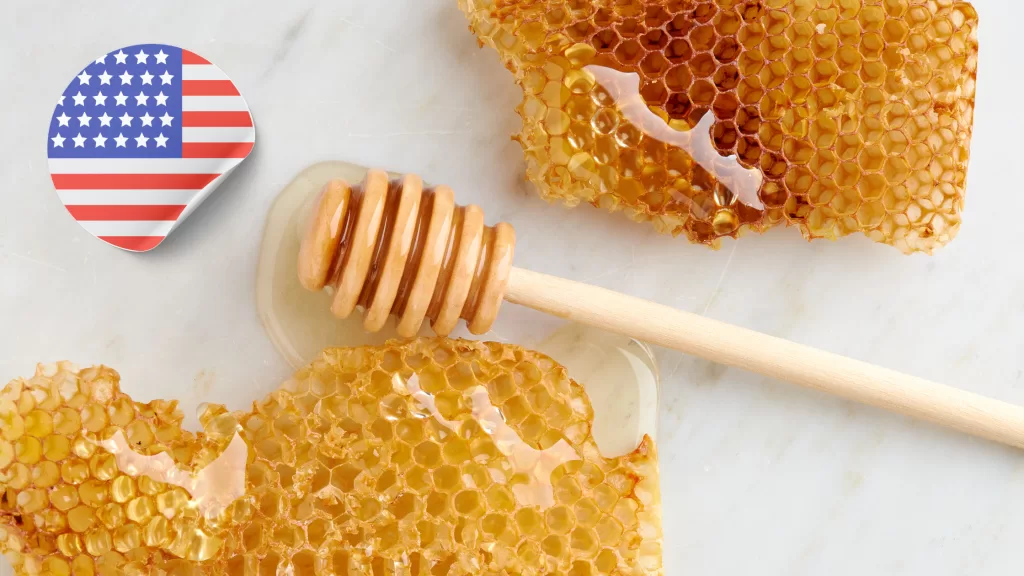HONEY HEALTH BENEFITS
Honey Health Benefits:
Honey is a natural sweetener that offers several health benefits and has been used for centuries in traditional medicine. It is rich in antioxidants, possesses soothing properties, and provides various nutrients. Let’s delve into the health benefits of consuming honey and its potential applications in natural remedies:
Honey is packed with antioxidants, including phenolic compounds like flavonoids and organic acids. These antioxidants help protect the body from oxidative stress caused by free radicals, which can contribute to chronic diseases and aging. The presence of antioxidants in honey may help reduce the risk of heart disease, certain types of cancer, and promote overall health.
Honey has been recognized for its soothing effects on the body. It can be used to relieve coughs and sore throats due to its antibacterial and anti-inflammatory properties. The thick consistency of honey helps coat the throat and provides a soothing effect. Honey can also be applied topically to minor burns, wounds, or skin irritations to promote healing and reduce inflammation.
Honey is a natural source of carbohydrates, including glucose and fructose, which provide a quick energy boost. It also contains small amounts of vitamins and minerals, such as vitamin C, calcium, and potassium. While honey is not a significant source of these nutrients, it can be a healthier alternative to processed sugars due to its additional health benefits.
Consuming honey in moderation can support digestive health. It has prebiotic properties, meaning it serves as a food source for beneficial gut bacteria. By promoting the growth of these good bacteria, honey helps maintain a healthy gut microbiome, which is essential for digestion, nutrient absorption, and overall well-being.
Honey has been used for its wound-healing properties for centuries. Its antimicrobial properties can help prevent infection and promote the healing process. Manuka honey, in particular, has gained attention for its potent antibacterial properties and effectiveness in treating wounds, ulcers, and burns.
Some people believe that consuming local honey may help alleviate seasonal allergies. The theory is that the pollen present in honey, when consumed in small amounts, could desensitize the body to allergens and reduce symptoms. However, scientific evidence supporting this claim is limited, and it may not be effective for everyone.
More From The Hive:

A Comprehensive Guide to Australian Honey: Types, Production, and Benefits
Australia is home to some of the world’s finest honey, known for its unique flavors, exceptional quality, and health benefits. Thanks to its diverse flora and pristine natural environment, Australia produces honey that reflects the rich biodiversity of its landscapes. Whether it’s the famous Manuka honey from the Leptospermum trees

An In-Depth Guide to Honey in the United States of America (USA): Types, Production, and Benefits
Honey, one of nature’s sweetest treasures, has been an integral part of human diets and cultures for thousands of years. In the United States of America (USA), honey production is not only a thriving industry but also a testament to the country’s diverse ecosystems. From the tropical blossoms of Florida

The Small Honey Bee (Apis florea): A Comprehensive Guide to One of Nature’s Tiny Pollinators
The Small Honey Bee, scientifically known as Apis florea, is one of the lesser-known species of honey bees, yet it plays a vital role in the ecosystems of Asia and parts of the Middle East. Despite its size, the Apis florea bee is a remarkable pollinator, and its unique biology

Exploring the Sweet Diversity of Canadian Honey: A Guide to Types and Flavors
Canada is home to a rich tapestry of landscapes and climates, each contributing to the unique flavors and types of honey produced across the country. From the prairies of Alberta to the forests of British Columbia, Canadian honey reflects the diverse flora that bees visit. In this blog, we will

The Rock Honey Bee (Apis laboriosa): Guardians of the Himalayan Honey
The Rock Honey Bee (Apis laboriosa) is an awe-inspiring species that thrives in the rugged landscapes of the Himalayas, where it builds massive nests on vertical cliffs. Known for producing highly prized wild honey and for its ability to endure extreme mountain conditions, this bee species has captivated researchers, beekeepers,

The Giant Honey Bee (Apis dorsata): Nature’s Fearless Honey Maker
The Giant Honey Bee, scientifically known as Apis dorsata, is a remarkable species native to South and Southeast Asia. Known for its impressive size, bold temperament, and incredible honey-producing capabilities, this bee plays a crucial role in the ecosystem and supports human livelihoods. Despite its importance, the Giant Honey Bee
